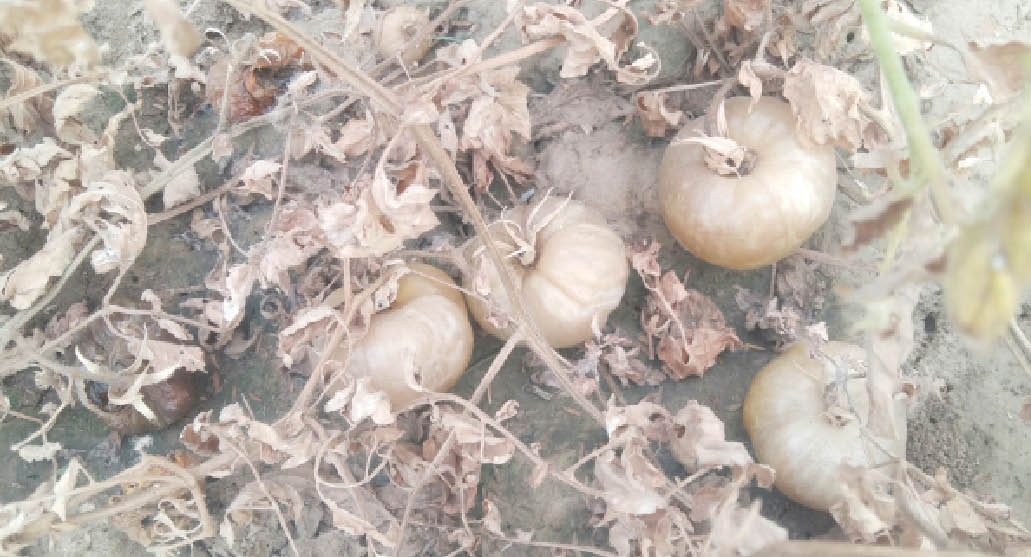Strange tomato disease hits Jigawa
A strange disease is ravaging many tomato farms in Jigawa State, raising fears about scarcity and the resultant high cost of the produce. The disease causes the plants to turn brown, wilt and then dry up. Farmers across the state are currently engaged in dry season farming which began around January. The disease, is mostly found […]

One of the affected farms
A strange disease is ravaging many tomato farms in Jigawa State, raising fears about scarcity and the resultant high cost of the produce.
The disease causes the plants to turn brown, wilt and then dry up.
Farmers across the state are currently engaged in dry season farming which began around January.
The disease, is mostly found in tomato farms in Birnin Kudu Local Government Area of the state.
The disease has persisted despite the application of pesticides and fertilizer, the farmers said.
The farmers, who said they have reported the case to agricultural experts severally, said the disease has defied all solutions.
Majority of the farmers have resigned to fate by attributing the menace to the change in the direction of the wind, which according to them, occurred suddenly and that the effect was spontaneous.
One of the farmers said most of them were no longer interested in dry season tomato farming because, “once the disease sets in, it does not spare any part of the farm.”
However, there are few farmers who continue to tend their farms and are fortunate to record bumper harvest.
Meanwhile, there is a sharp shortfall in the supply of tomato, and the price has skyrocketed. A basket can cost as much as N8,000 at the point of harvest, while if they are taken to the South, a basket can cost as high as N11,000 or more.
The dry season is the most profitable period for farming tomatoes. The proceeds from its sale enable farmers to commence the rainy season farming well equipped in terms of cash for buying needed farm inputs.
A farmer, Malam Haladu Yusuf, told Daily Trust that he had been farming tomato during the dry season for the past 10 years but that he was fortunate for only two farming seasons.
Malam Yusuf said tomatoes lasted for 90 days, from planting to maturity, and that it was usually attacked by the disease half way into its growth.
He added that once the weather changes, the plants began to wilt and the tomatoes became hard and changed colour.
On whether the farmers are unknowingly using contaminated seeds, Yusuf explained that farmers around his locality had since cultivated the habit of procuring inputs from certified government agencies, adding however that the most disturbing aspect was that after buying from genuine sources they still battled with the disease.
Yusuf added that, “70 per cent of tomato farms in this year’s dry season farming are affected by the disease. Only a handful of farmers were lucky to scale through; this implies that there will be acute shortage of tomatoes in a few months to come,” he added.
The Director of Agricultural Services of the Jigawa State Ministry of Agriculture, Bashir Umar, attributed the situation to problems associated with late planting, and therefore, urged the farmers to always adhere to early planting.
